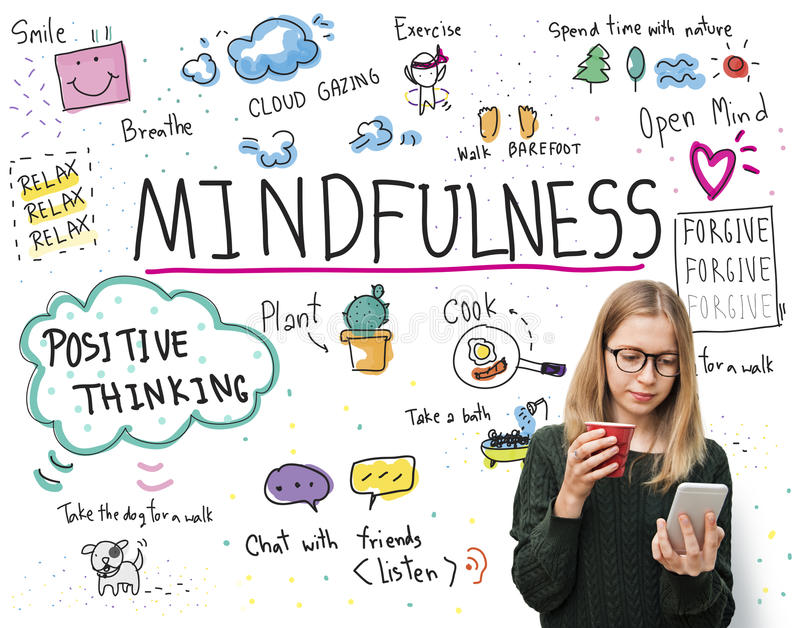Amidst the hustle and bustle of modern life, it’s effortless to become absorbed in the commotion and lose connection with our inner being. We’re constantly bombarded by stimuli, from social media notifications to work deadlines to personal responsibilities. It can feel like we’re on a never-ending treadmill, always rushing to keep up.
That’s where mindfulness comes in. Mindfulness is a technique that encompasses being attentive to the current moment, without forming any evaluations or criticisms. It’s about being aware of your thoughts, emotions, and sensations, and accepting them without trying to change them.
There are also numerous scientific studies that have demonstrated the benefits of mindfulness. For example, a 2018 study published in the journal Mindfulness found that mindfulness meditation can reduce symptoms of anxiety and depression in people with generalized anxiety disorder.
Mindfulness has gained widespread attention in recent years, and many experts have weighed in on its importance.
“Mindfulness is the ability to recognize what is happening in your mind, body, and environment, without being pulled in any one direction by it.”
– Dan Harris, author of “10% Happier.
The benefits of mindfulness are numerous, and they’ve been well-documented by scientific research. Here are just a few of the ways that practicing mindfulness can improve your life:
Calm the Mind and Reduce Stress:
The practice of mindfulness can be instrumental in discovering inner peace.
Mindfulness is a powerful tool that can alleviate stress and anxiety, making it one of its most significant advantages in achieving inner peace. Being mindful equips us to cope with challenging emotions and circumstances more effectively. We’re more aware of our thoughts and feelings, and we can respond to them in a more measured way. Studies have shown that mindfulness can be as effective as medication in treating anxiety and depression.
One of these experts is Dr. Mark Hyman, (a physician and New York Times bestselling author) who has spoken extensively about the benefits of mindfulness for reducing stress and anxiety. He believes that mindfulness is a powerful tool for promoting mental and emotional wellness and that it can be as effective as medication in treating anxiety and depression. Dr. Hyman highlights in his book, “The UltraMind Solution: Fix Your Broken Brain by Healing Your Body First,” that mindfulness is an immensely effective method for diminishing stress, anxiety, and depression. By practicing mindfulness, we can detach ourselves from our thoughts and emotions and scrutinize them without criticism. This approach empowers us to react more cautiously instead of impulsively.
Boost Your Focus and Concentration:
The Power of Mindfulness for Improving Productivity
Mindfulness is also great for improving focus and concentration. When we’re mindful, we’re better able to stay present and focused on the task at hand. Individuals grappling with ADHD or other attention-related problems can benefit significantly from this technique.
There are many experts who have studied the benefits of mindfulness for improving focus and concentration. Dr. Michael Baime, who heads the Penn Program for Mindfulness at the University of Pennsylvania, is among the experts who support this approach. In an article published in the journal Annals of the New York Academy of Sciences, Dr. Baime and his colleagues wrote about the benefits of mindfulness for attention-related issues. They explained that mindfulness can help to improve attention and concentration by promoting a state of relaxed alertness. According to Dr. Baime and his colleagues, “Mindfulness meditation practices may enhance attentional processes by reducing distractibility and enhancing the ability to sustain attention on a particular object or task.” They went on to explain that this enhanced attention can lead to improvements in other cognitive functions, such as memory and decision-making.
Develop Self-Awareness and Improve Yourself:
How Mindfulness Can Help You Become the Best Version of Yourself
Mindfulness can also help us become more self-aware. When we’re mindful, we’re better able to recognize our own patterns of thought and behavior. We can see our strengths and weaknesses more clearly, and we can make changes to improve ourselves.
A prominent expert Dr. Ellen Langer, (a social psychologist and Professor of Psychology at Harvard University) explains that mindfulness can help us to become more aware of our strengths and weaknesses, which can be particularly helpful for personal growth and development. By becoming more self-aware, we can identify areas where we need to improve and make changes to become the best version of ourselves.
Strengthen Your Relationships with Others:
The Surprising Benefits of Mindfulness for Interpersonal Connections
Mindfulness can also help us improve our relationships with others. When we’re more aware of our own thoughts and feelings, we’re better able to empathize with others. We’re also better able to communicate our own needs and desires in a clear and compassionate way.
Research suggests that mindfulness can be a powerful tool for improving our relationships with others. By becoming more present, attentive, and compassionate, we can deepen our connections with the people around us and experience greater fulfillment in our relationships. There are many experts who have studied the benefits of mindfulness for improving relationships. A study published in the journal Mindfulness found that mindfulness was positively correlated with relationship satisfaction, meaning that people who practiced mindfulness tended to report higher levels of satisfaction in their relationships.
Improve Your Physical and Mental Health:
How Mindfulness Can Enhance Your Overall Well-Being
Mindfulness has been linked to better overall health. It has been known to decrease blood pressure, alleviate persistent pain, and enhance the immune system’s functioning. By reducing stress and promoting relaxation, mindfulness can help us feel better both physically and mentally.
Mindfulness has been linked to better overall health, and there is a growing body of research supporting this connection. Dr. Herbert Benson, a renowned cardiologist and the founder of the Benson-Henry Institute for Mind-Body Medicine at Massachusetts General Hospital, In his book “The Relaxation Response,” writes, “Mindfulness can activate the body’s natural relaxation response, which can lead to a number of health benefits. These benefits can include lower blood pressure, reduced chronic pain, and even improved immune system functioning.” Dr. Benson explains that when we’re stressed, our body goes into a state of “fight or flight,” which can have negative effects on our health. By practicing mindfulness, we can activate the relaxation response, which can counteract the effects of stress and promote greater health and well-being.
Overall, the benefits of mindfulness are numerous and far-reaching. Whether you’re struggling with anxiety, looking to improve your focus, or simply trying to live a more balanced life, mindfulness can help. So why not give it a try? Set aside some time each day to practice mindfulness, whether it’s through meditation, yoga, or simply taking a few deep breaths. Your mind and body will thank you.




